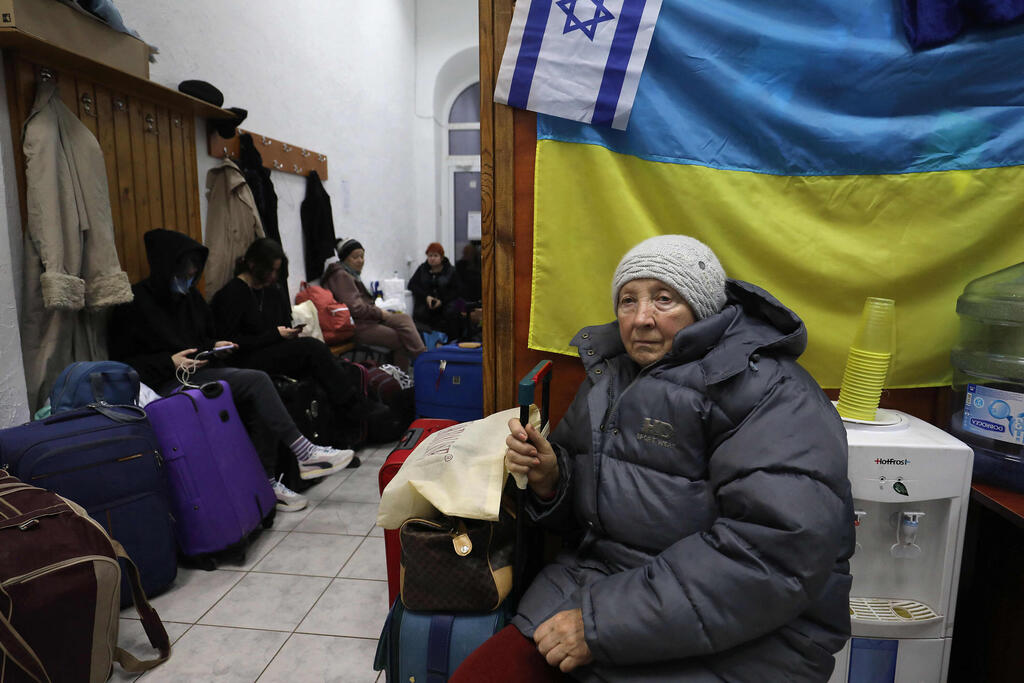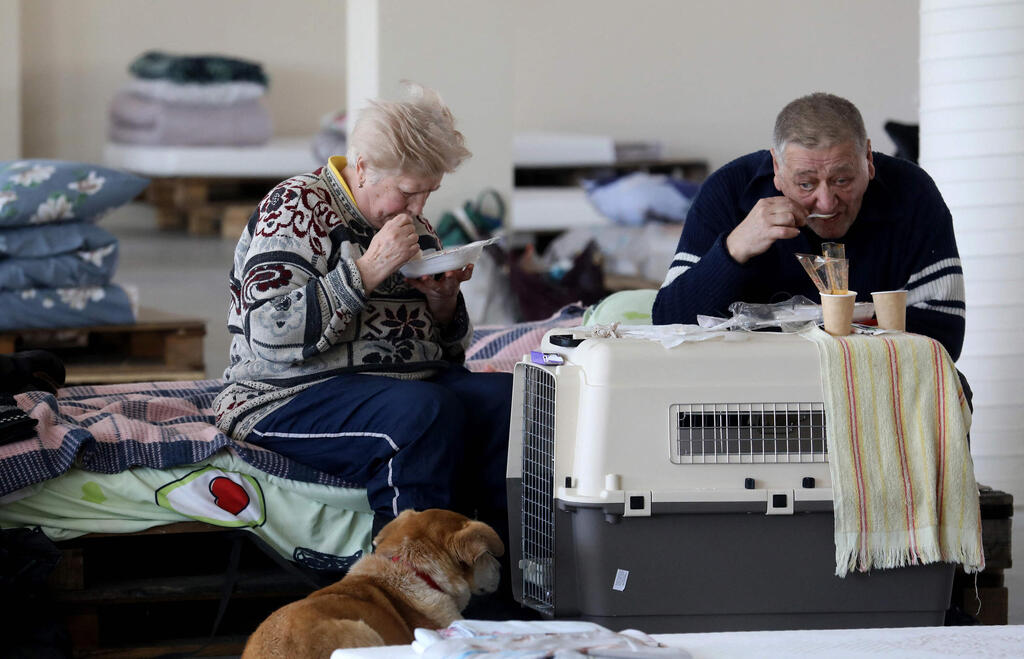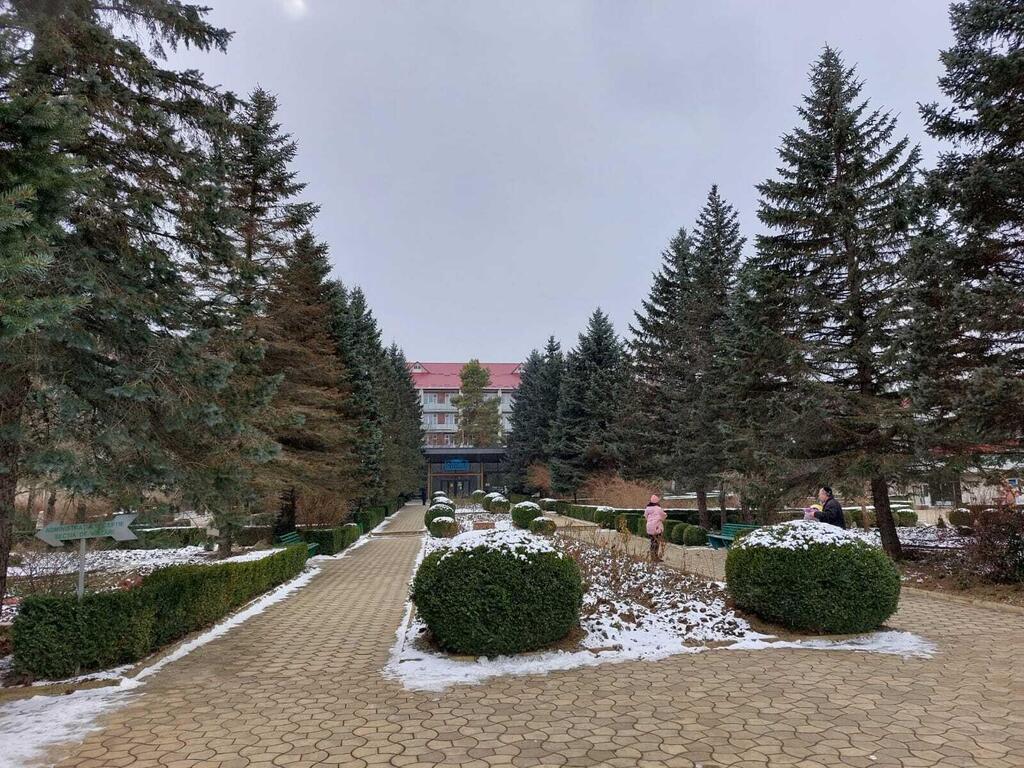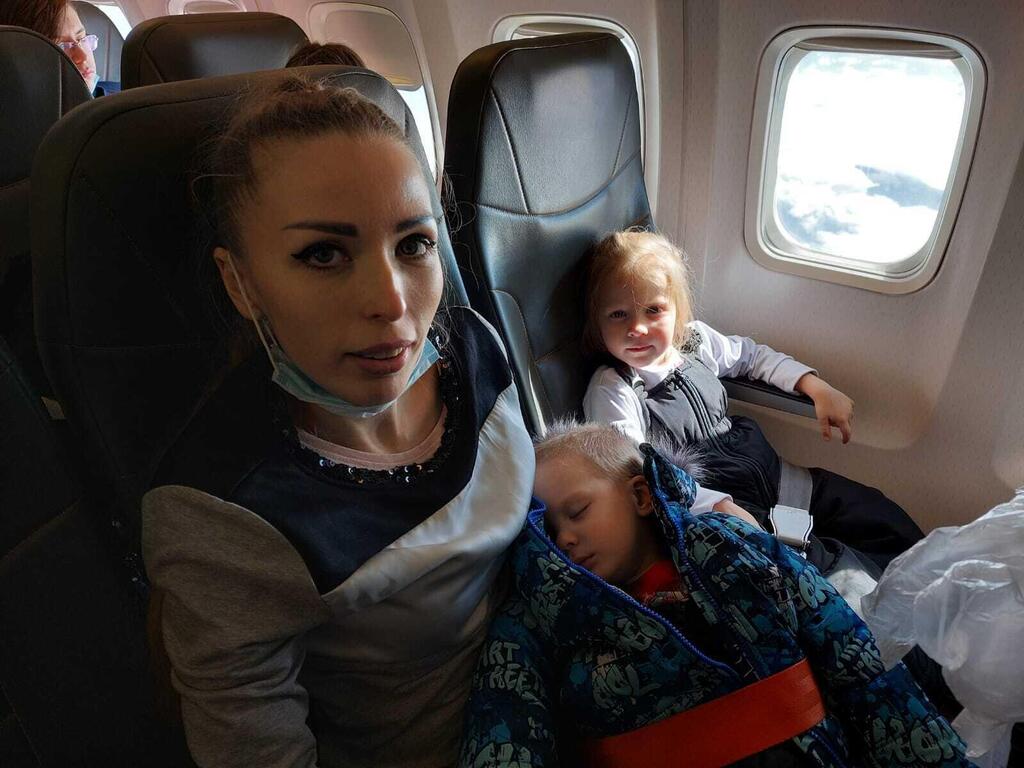Getting your Trinity Audio player ready...
As the war in Ukraine continues to rage, millions of people continue to be displaced by the Russian invasion on a daily basis, with no one but volunteer and non-profit groups to rely on. One of those organization is Moldovan Chabad that set up shop on the border with Ukraine, helping refugees, including Jews, safely make it across the border.
Yeruslava had traveled for 24 hours from Kyiv with Dina, her eight-year-old daughter, before they finally managed to cross the border and reach the town of Călărasi in Moldova, where they would spend a few days in "Codru" guest house - where Chabad runs their rescue effort.
Yeruslava's husband, however, had to remain in Kyiv because the Ukrainian authorities would not let him cross the border. "At least he's not in the army," she says. They crossed the border with almost no baggage, and while Yeruslava may not be Jewish, her husband is, so she and her daughter could get assistance from Chabad.
Victoria Stzvichick also arrived in Moldova without her husband from a small town near Kyiv. "My husband couldn't get out of Ukraine but I'm here with my two children, along with my sister and her two children and our mother, and we all want to get to Israel," she says.
Alexandra Zorville, Stzvichick's sister, said they spent two days on the road, coming from the city of Dnipro to a Chabad house in Kishinev and from there to a guest house in Călărasi. "We left just in time before they started bombing. We were very worried about what would happen and whether we would have a place to sleep and protect ourselves from the cold. When we arrived, we suddenly realized that there are people who take care of all of these things and it warmed our hearts," says Zorville.
5 View gallery
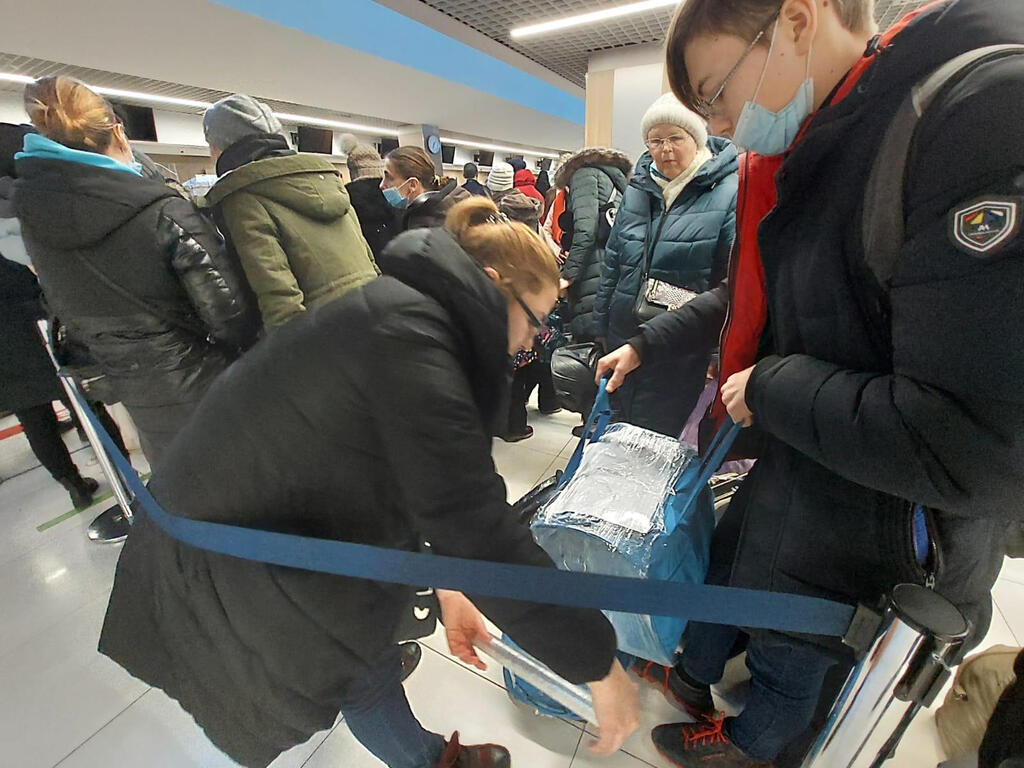

Alexandra Zorville arrives in Israel on a rescue flight from Moldova
(Photo: Riki Carmi)
In the Codru guest house in Călărasi, refugees are currently staying along with tourists who came for a vacation. The chief administrator of the place, Andrey David, said that 180 beds have been allocated for refugees from Ukraine. To recruit the place to help, the Chabad organization had to use the help of a local member of parliament, Natalia Davidovich, and a local lawyer, Alex Gneperin.
The chief administrator says that "nearly 3,000 Jewish refugees from Ukraine have passed through here so far. Chabad asked for assistance from the Codru guest house and we immediately decided to help. We are in times of war and we're trying to help people and provide a safe place. We also fear becoming refugees ourselves, but for now, we are optimistic."
Gneperin is originally from Ukraine, and he believes Moldova must assist the refugees because the war is affecting all bordering countries, and it is unclear whether the Moldovan people will also soon need help.
"There are Russian soldiers in Transnistria [an unrecognized breakaway state located in the narrow strip of land between the river Dniester and the Moldovan–Ukrainian border], 50 kilometers (31 miles) from Kishinev, and word on the street is that the Russians can also invade and take control of Moldova. Our country is divided 50%-50% [of those supporting Russia and those supporting Ukraine], it could create a civil war," Gneperin adds.
Every day, hundreds of refugees are helped by Chabad, providing a warm bed, food, and even a shoulder to lean on in the days when their future is not clear. The International Fellowship of Christians and Jews donated some $4 million to the effort. The Jewish community in Moldova, meanwhile, mobilized to assist them. All of this still feels like a drop in the ocean.
Refugees continue to arrive in the country non-stop. "It is estimated that some 200,000 refugees have already left Moldova out of 300,000 who have arrived, but they keep on coming every day," Gneperin says.
On Shabbat, everyone in the guest house mingled with one another. There seemed to be no difference between the refugees and families who came for a vacation. The children were playing in the halls and although snow covered everything outside - inside it was mostly warm and cozy.
For a moment, whoever came from Ukraine and left behind his or hers entire life could rest and forget the troubles they have gone through - and those waiting for them down the road.
Victoria Stzvichick and Alexandra Zorville's family was lucky, and by Monday, all their travel arrangements were taken care of and they were heading to the rescue flight en route to Israel. In the morning, the six excited members of the family finally boarded the flight, with only one suitcase per person.
Some 150 people arrived on this rescue flight from Kishinev Airport, which was opened especially for the Jewish Agency for Israel and the International Fellowship of Christians and Jews.
Upon landing in the Jewish state, they went through an absorption process, and after that taken by buses to the hotels with the rest of the refugees.
The passengers on the flight said they were afraid of starting a new life. They left everything behind, but felt there was no other way and it was time for a new beginning in Israel.


